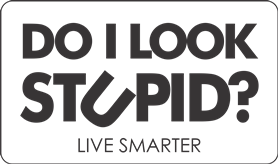In the good old days, etiquette was all about the simpler things:holding the door open for a woman colleague, wishing someone the time of day, never being late for an appointment and so on. However, even though all of these hold good in today’s working environment, let us not forget that things have changed. For instance, technology has completely changed the way in which we conduct business. Look at the various options we have today – e-mail, Skype, cell phones and voice mail not to speak of a more relaxed working environment in terms of office timings, dress codes and so on. That in itself is an etiquette upgrade!
Now look around you. Your work environment can really be likened to a mixed salad. There are old and young people who work side by side with you; there are males and females; there are those who are highly educated and those who are not so… the list is endless. This diverse mix only means that each person brings to the table his or her own set of beliefs, values and of course expectations.
Once all the above are taken into consideration it also means that there is going to be more than one way of looking at a situation and tackling a problem. And while this may or may not be in sync with your own way of doing things you learn to compromise along the way and see the other person’s perspective and point of view. But such variety in the workplace makes it imperative for supervisors and co-workers to be sensitive to different communication and working styles and this is where etiquette becomes so important.
Look at it this way. You cannot have a bunch of people sniping at each other or you will end up witnessing the company’s output suffering. If you are in the service industry, for example, all you will spend the day doing is soothing the ruffled feathers of some irate client who may have been talked down to by an unhappy employee! There’s no doubt that employees are far more productive in a harmonious workplace where they coexist in a healthy environment.
So, how does etiquette help and what is it all about? Experts say that etiquette is what makes work places civilized places to be in. Today, with work pressures being high, there are bound to be situations that cause stress. So constant doses of etiquette that is ingrained into employees is what help the situation becoming more relaxed and less pressure cooker like.
Let’s look at some written and some unwritten rules…
Be sensitive
Consider other people’s feelings, but stick to your convictions as diplomatically as possible. Address conflict as situation-related, rather than person-related. And, most importantly, apologise when you step on someone’s toes.
Answer your mail
For some organisations etiquette entails quite a few habits like returning a voice-mail, responding to the e-mail even if you do not have much to say and setting your phone on the silent/vibrator mode during meetings.
Be ethical
Without a code of ethics life would take a nightmarish turn. You must learn to respect peoples’ confidences and secrets. Office gossip is all very well, but not at someone else’s expense. Organisations do maintain a certain level of privacy and it is considered most unethical to discuss company affairs with outsiders. The safe rule here would be never to gossip about co-workers and never to discuss company business outside the office.
Security matters
It is most important to keep important files and documents locked away. Do not leave revealing letters hanging around on your table. Notes, notebooks etc, should be kept away especially when you are not in your office – even if this is for a few minutes. Take care of how you dispose of material. Remember… things can be taken out of the wastepaper basket and read.
Personal bloopers
Now let’s cut to the basics and talk about personal habits. What is it here that constitutes office etiquette? Well, annoying habits such as pencil tapping or rocking up and down in your chair or even continuously wagging your foot are definite no-nos. Smoking in anon-smoking zone; interrupting someone before he or she has completed his/her sentence; drumming your knuckles on the desk when you are bored with someone and staring at your feet when someone is talking to you are some other things you should most definitely not do.
Your appearance is important. Experts say you should dress for the job you want and not for the one you have. Although offices vary in the kinds of dress codes they have, it would do well to wear a conservative shirt and pair of trousers and a sober tie (if office rules require). The rule of thumb would be to follow the example of others in your office.
Grooming counts
Clothes are only part of the picture you present. Good posture, clean hair and nails and a respectable hairstyle are other factors you must keep in mind. In short you should look dressed for office and not for a picnic! Women should desist from painting their nails or filing them or even putting on lipstick in public.
Elevator courtes
Most people are either in a hurry to get to or leave the office. Elevators, therefore, are often crowded and common courtesy requires that you wait for people to get out before you get in to the elevator. If you are carrying packages, be careful that you don’t shove them into people. The golden rule is – don’t push and shove!
Be a tidy housekeeper
Most of us do not worry about being tidy once we leave the house. Neatness or sloppiness is very visible in an office situation. Since it is easy for someone to associate an office in disarray with carelessness at work, it is wise to keep your files and other material in a neat and orderly fashion.
In a nutshell…
Don’t
Tap out a tune with your pencil on the desk.
Rock up and down in your chair or continuously wag your foot.
Smoke in a non-smoking zone.
Interrupt someone before he or she has completed his/her sentence.
Drum your knuckles on the desk when you are bored with someone.
Stare at your feet when someone is talking to you.
Barge in on someone else’s conversation.
Gossip about co-workers.
Do
Switch your cell phone off before you attend a meeting.
Answer the telephone politely and take a message if the call is for your colleague.
Knock before you enter a room.
Ask before you sit down.
Be neat in your style of dress.
Wait for people to get out before you get in to the elevator.
Visual Courtesy:http://www.flickr.com/photos/calliope/







